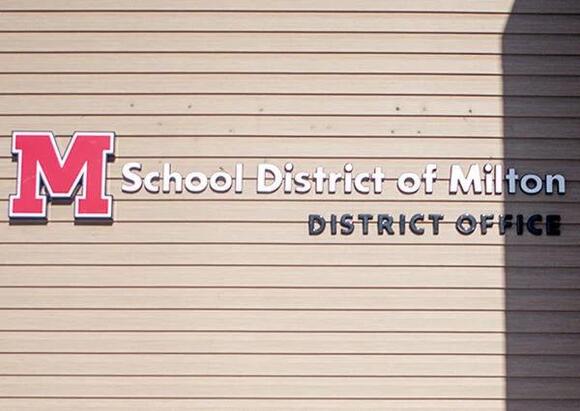
MILTON — Milton School District administrators and school board members talked about what a referendum might look like and about the impact of budget cuts Wednesday at the last of a series of Community Focus Group sessions.
The gathering included breakout group exercises to reflect on the sessions.
Groups were given poster boards divided up into four sections: “Key Takeaways,” “Questions,” “Concerns” and “Moving Forward.”
School Board Vice President Rick Mullen participated in one breakout group and spoke for the group when they shared the bullet points.
“We talked also a lot about that we need to let the public know about what’s happening in the school and all the great opportunities that are happening, and how if something doesn’t change, what’s going to happen,” Mullen said.
“I really worry about student achievement,” he noted.
The district may have a referendum question on the November ballot, Superintendent Rich Dahman said. The school board will discuss that further in July.
The session again featured a presentation by Dahman and Business Services Director Ross MacPherson.
MacPherson told the audience that balancing school budgets requires additional revenue and/or budget cuts.
Cuts could bring a myriad of actions including a wage freeze, staff reduction, a redesigned benefits plan, reduction or elimination of programs, deferred maintenance, collapsed roles or responsibilities, building closures, fewer extracurricular activities or a reduction in controllable costs and budgets.
About 70-75% of the district’s expenses go to salaries and benefits, with the remainder mostly being fixed costs, Dahman said.
“It’s really the only way to make significant reductions in spending for a district, to have fewer people or pay the people you have less, and we know both of those things have a significant impact on our students,” Dahman said. “Having fewer people means larger class sizes, means fewer opportunities for students. Paying people less or reducing wages or benefits means that we are no longer able to compete for high quality in our employee groups, which diminishes the experience for our students.”
MacPherson also went over the difference between recurring versus nonrecurring referendums. A recurring referendum carries over in perpetuity while there is a set period of years for nonrecurring referendum.
He said a recurring referendum establishes a “desired level” of funding consistency, increases the base multiplier in following years and creates stabilization for structural deficits. The cons are, he said, are that there would be a “perception of permanency” and it would still not be a permanent solution.
A non-recurring referendum, he said, avoids that “perception of permanency.” The cons are, he said, is that it expires by default and it requires authorization on a cyclical basis.
 Most Popular
Most Popular

Comments / 0